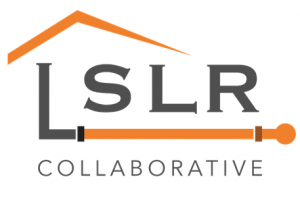Tom Neltner, J.D., is Chemicals Policy Director
Accelerating full replacement of lead service lines (LSL) – the lead pipes that run from the drinking water main under the street to homes – is a priority for EDF. These pipes are the primary source of lead in water and, when disturbed, may release lead particles that expose consumers, without warning, to extremely high levels. As part of the effort to encourage safe and effective removal of LSLs replacement, EDF helped launch a new Lead Service Line Replacement Collaborative with 23 national public health, water utility, environmental, labor, consumer, housing, and state and local governmental organizations to help communities develop and implement voluntary programs to eliminate these pipes.
from the drinking water main under the street to homes – is a priority for EDF. These pipes are the primary source of lead in water and, when disturbed, may release lead particles that expose consumers, without warning, to extremely high levels. As part of the effort to encourage safe and effective removal of LSLs replacement, EDF helped launch a new Lead Service Line Replacement Collaborative with 23 national public health, water utility, environmental, labor, consumer, housing, and state and local governmental organizations to help communities develop and implement voluntary programs to eliminate these pipes.
Today, the Collaborative released an online toolkit to assist communities in lead service line replacement. The online toolkit includes:
- A roadmap for getting started,
- Suggested replacement practices to identify and remove lead service lines in a safe, equitable, and cost-effective manner,
- Policies that federal and state leaders could adopt to support local efforts, and
- Additional resources that may be helpful when developing local programs.
USA Today highlighted the Collaborative and the toolkit in an article also released today.
The toolkit is intended to be a living resource. Therefore, the Collaborative is seeking communities to pilot and provide feedback on the materials.
The voluntary efforts promoted by the Collaborative are not a substitute for a long-overdue overhaul of the Environmental Protection Agency’s Lead and Copper Rule (LCR). Even under the best of scenarios, the revised rule will be promulgated in 2018 and go into effect in 2021. The next administration’s statements about regulations puts even that distant date in doubt.
Instead of waiting for a new rule, the Collaborative’s toolkit leverages from the knowledge and experience of its members and their constituents. It draws from the successful LSL replacement programs of Madison, WI, Lansing, MI, and the ongoing work of Boston, MA and Washington, DC. It also learns from programs in Cincinnati, OH, and Milwaukee, WI that are launching comprehensive efforts as well as the states of California, Michigan, Ohio, Washington, and Wisconsin that laid foundations for communities to undertake replacement programs in 2016.
The Collaborative is grounded in the following principles:
- Removal of lead service lines in contact with drinking water provides an opportunity to significantly reduce the risk of exposure to lead from drinking water.
- LSL replacement initiatives must be designed to ensure residents are protected during and after the removal and that the work is done in a cost effective manner.
- LSL replacement initiatives should address barriers to participation so that consumers served by LSLs can benefit equitably, regardless of income, race or ethnicity.
- A collaborative, community-based approach, built on contributions from residents, health officers, utilities, community leaders, local elected officials, can help provide the strong foundation needed for successful action.
- Innovative models are needed to help communities find the tools, strategies and resources needed to replace LSLs based on the latest science and current best practices.
- By providing models for LSL replacement, it is possible to advance support for initiatives at all levels of government and in different types of communities.
- Successful LSL replacement initiatives will take careful planning and time.
- This effort is focused on mechanisms to support local action not on EPA’s efforts to revise the Lead and Copper Rule.
The members of the Collaborative are:
- American Public Health Association
- American Water Works Association
- Association of Metropolitan Water Agencies
- Association of State Drinking Water Administrators
- Blue Green Alliance
- Children’s Environmental Health Network
- Clean Water Action
- Environmental Defense Fund
- Justice and Sustainability Associates
- Learning Disabilities Association of America
- National Center for Healthy Housing
- National Association of County and City Health Officials
- National Association of State Utility Consumer Advocates
- National Association of Water Companies
- National Conference of State Legislatures
- National Environmental Health Association
- National Rural Water Association
- Natural Resources Defense Council
- RESOLVE
- Rural Community Assistance Partnership
- Trust for America’s Health
- United Parents Against Lead
- Water Research Foundation
Of course, this is just part of the solution, but were are very encouraged by the broad interest and participation in getting lead service lines out of use throughout the country.









